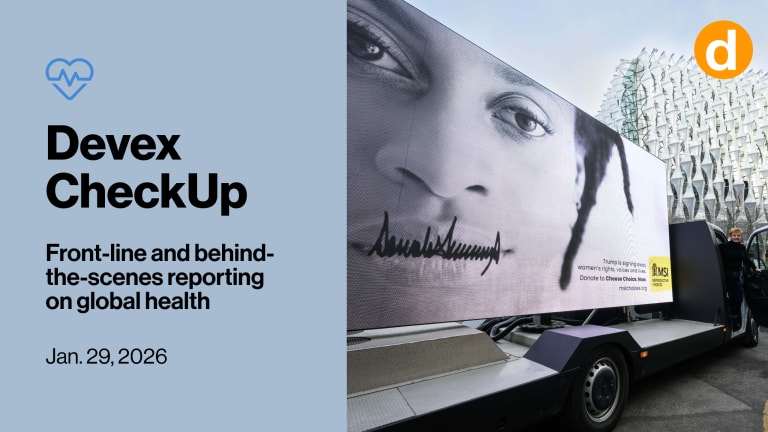It's time for the United States to take a "big tent" approach to addressing
.
So advocated several U.S. delegates to the Fourth World Urban Forum, held Nov. 3-6th 2008 in Nanjing. At a Jan. 7 forum in Washington, panelists discussed the highlights of WUF4 and outlined goals for the 2010 World Urban Forum in Rio De Janeiro.
Delegates from around the world attended last year's event in China, representing a broad variety of stakeholders from several levels of government, civil society and the private sector. But U.S. participation was muted, limited mainly to representatives of aid organizations and a five-person governmental delegation, panelists indicated at last week's event, entitled "From Nanjing to Rio De Janeiro: Bringing the Urban Agenda to the Development Community" and hosted by the Woodrow Wilson International Center for Scholars.
Several panelists emphasized the need to broaden the U.S. discourse on global urban development beyond the aid community. Jessica Tulodo, acting team leader of urban programs and engineering services at the U.S. Agency for International Development, spoke about the specific need to reach out to local U.S. governments. "It's not called the World Urban Forum for Poor Countries," she said, arguing that U.S. mayors could reap great benefits from liaising with their counterparts in other nations.
Moreover, according to U.N. Habitat Representative Christopher Williams, bridging the conceptual gap between global and domestic urban policy is a critical part of making the case for foreign aid to Congress. In particular, Williams advocated deeper engagement with experts from the U.S. financial services and real estate sectors.
Indeed, this expansion of American participation may not be far off. Gerard Anderson, deputy assistant secretary of the State Department's Bureau of International Organization Affairs, announced his intent to request greater funding to U.N. Habitat. Several panelists also expressed hope that an Office of Urban Policy, which U.S. President-elect Barack Obama has pledged to form, would embrace an international approach.
It was also noted that if U.S. participation in international events is to be encouraged, it may not be a good idea to hold them on the day of the U.S. presidential election.








